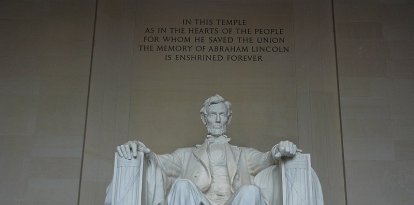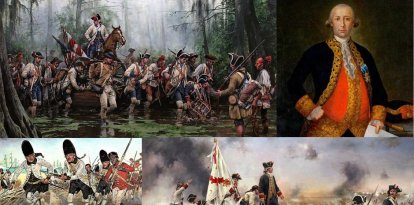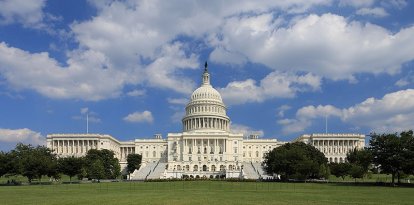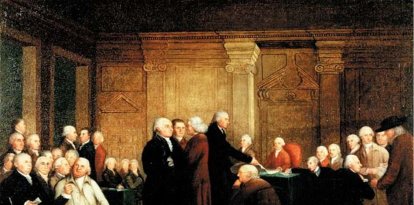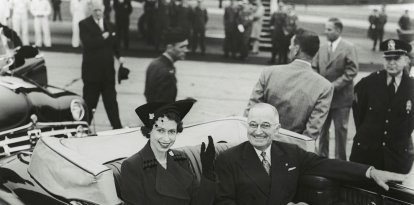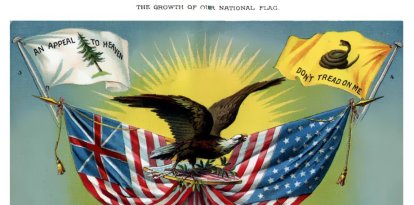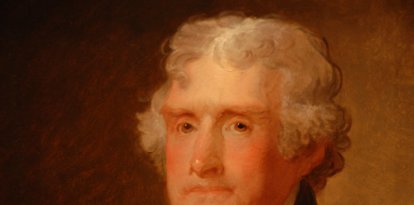Paul Johnson, Revered Writer and Conservative (1928 - 2023)
"America's great Republican experiment is still the focus of the world's eyes. It is still the first and best hope for the human race."
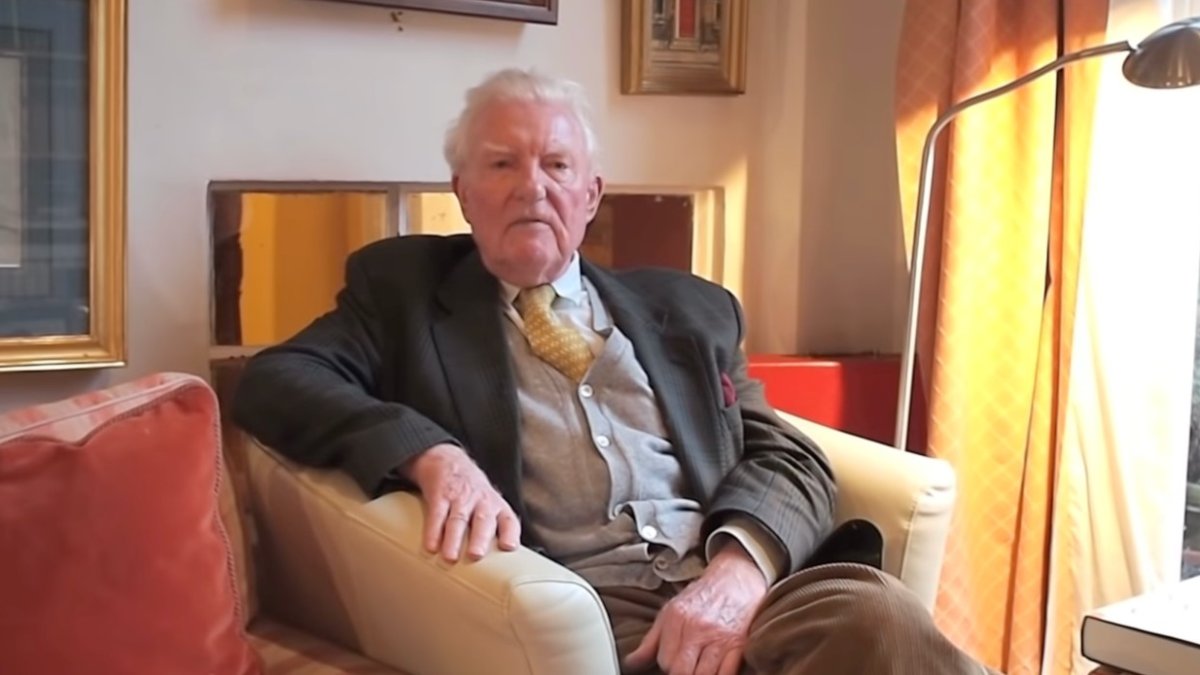
(Prager U.)
I don't know if I am the most qualified person to judge Paul Johnson's work, although I have read his most important books (Modern Times, History of the Jews, A Story of the American People, Intellectuals, The Quest for God). Since those readings date back some 20 years, I have reopened these old mammoth books, looking for the passages I underlined. Then I found myself in a bind: I couldn't stop reading. I would say that Johnson's most important feature, was his overwhelming readability. Along with it, his uncontainable prolificacy stands out: dozens of volumes and hundreds of pages on the most varied historical and cultural topics, along with the other thousands of columns he wrote.
Johnson narrated the exquisite for his crystal-clear intelligibility and million-dollar sales. Moreover, the exquisite leftists (forgive the redundancy) did not forgive him for his switch to conservatism. Johnson, a Labour sympathizer in his youth and early adulthood, went on to lead The New Statesman, the quintessential British progressive magazine, founded by the Fabian Socialists. If Roger Scruton, also a socialist in his youth, had his eyes opened by the French during the events of May 1968 (which, in turn, were greeted by a hopeful Johnson column), PJ seemed to have been moved to the right by the stagnation of 1970s Britain, seized by the hyper-power of the trade unions. At the height of the winter of discontent of 1978-79, Johnson had become an enthusiastic supporter of Margaret Thatcher and her policy of devolving services to the market.
After awakening from the progressive "dogmatic sleep" (Kant), Johnson became an archetypal Anglo-Saxon conservative, along the lines of Edmund Burke or Russell Kirk. As such, Johnson blamed progressive intellectuals for having arrogated themselves, from Rousseau onward, the competence to declare all previous generations irrational and to rebuild society from scratch according to their genius witticisms. This epistemological arrogance did not characterize the entire Enlightenment, only what Hayek called the "French Enlightenment."
Traditions are repositories of social experience, repertoires of solutions that society has found, through trial and error, over millennia. "Important social traditions are not simply arbitrary customs. They are forms of knowledge. "They contain the residue of many trials and errors" (Scruton). The "English Enlightenment" found its continuity in the conservatism of Burke, Tocqueville, Hayek, Scruton and Johnson.
Our tragedy is that the most influential intellectuals of the last two centuries, from Rousseau to Marx, from Marcuse to Sartre and Beauvoir, have emerged from the utopian-promethean branch of the Enlightenment, not from its organic-conservative branch. Those "men who rose to claim that they could diagnose the ills of society and cure them by the use of their own intellect alone" are the ones Johnson instructed in Intellectuals:
And yes, the vast majority of progressive intellectuals turn out to have been egomaniacs, despotic, sexist and intellectually dishonest (they did not seek the truth, but twisted empirical and historical data to confirm their aprioristic convictions). The chapter dedicated to Marx stands out in this book. Unable to earn a living, he depended on the charity of his mother (who said, "I would like Karl to accumulate money, instead of just writing about it") and later on Engels. He forbade his bright and restless daughters to study (it was beginning to be possible: in the mid-nineteenth century the first women's colleges were opened in Oxford and Cambridge); later, two of them would end up committing suicide. The champion of the proletarian cause never had, unlike Engels, dealings with workers. The exception was the house maid, Helen Demuth, with whom Marx had a son, Henry Frederick Demuth in 1850, whom he later refused to acknowledge. Given to a working-class family, the illegitimate son "was allowed to visit the Marx home. However, he was forbidden to use the front door and was forced to see his mother only in the kitchen."
Moreover, Marx often used racist insults to denigrate his political rivals and the suitors of his daughters (Ferdinand Lassalle was called "the little black Jew"; Paul Lafargue, husband of Laura Marx, of Cuban origin, "the negro" and "the gorilla").
Johnson blamed progressive intellectuals for having arrogated themselves, from Rousseau onward, the competence to declare all previous generations irrational and to rebuild society from scratch according to their genius witticisms.
But I think is Johnson's best book is A Story of the American People. Despite the painful conflict of 1775-1781 (reiterated in 1812-14), British conservatives have tended to admire the United States as the great successful liberal-conservative experiment, the archetype of a civic nation (as opposed to ethnic nation) or a nation based on an idea. That idea is not democracy or freedom without more (John Winthrop, the first ideologue of the American, coiner of the famous metaphor "the city on the hill," was clear: "Freedom has not been given to man to do what he wants, but to study the divine commandments and then, in consonance with them, do only what is good"), but rather what Os Guinness called "the golden triangle of freedom," namely, the symbiosis between freedom, virtue and religious faith. Only a virtuous people could afford the experiment of freedom, and the only solid foundation for virtue is faith, which in turn can only develop with freedom (it is impossible of itself to force someone to believe). This, which today sounds stale in a culture debased by half a century of progressive hegemony, was proclaimed by all of America's Founding Fathers, including the religiously lukewarm. For example, Benjamin Franklin ("Only a virtuous people are capable of liberty"), John Adams ("Our Constitution was made only for a moral and religious people."), George Washington in his Farewell Address ("Where would be the security of property, of reputation, of life, if the oaths taken in the courts were not backed by a sense of religious obligation?") and Thomas Jefferson himself ("Can the liberties of a nation be held secure once their only firm basis, the popular conviction that they are a gift of God, has been removed?").
Johnson concluded his extraordinary work, written in 1998, with a reaffirmation of his confidence in America: "America's great Republican experiment is still the focus of the world's eyes. It is still the first and best hope for the human race." I don't know if he has maintained his hope in recent years, in view of the direction the American nation has taken, with its culture and politics infected by critical race theory. The new law, unhinged feminism, transgenderism and other aberrations. The Founding Fathers are no longer revered: they are now seen as miserable slave owners. Statues are coming down, no longer of Jefferson or Washington, but even of Lincoln (one in Portland and one in Boston), the hero who ended slavery at the cost of a civil war. In 2019, The New York Times accompanied the paper with a 100-page booklet outlining Project 1619: substitute 1776 for 1619 as the emblematic-foundational date... because in 1619 the first shipment of African slaves arrived in Virginia. As Douglas Murray has written, it is about "formalizing the idea that the country is sitting on an original sin: turning a narrative of heroism and glory into one of oppression and shame." Needless to say, what makes the United States unique is not having practiced slavery - which all human societies did until a century and a half ago - but having abolished it at the cost of a war that killed 600,000 people.
Death, mercifully, has perhaps saved Johnson from seeing even worse things.













